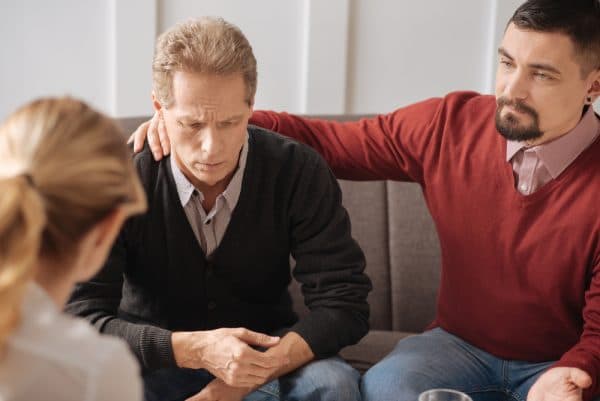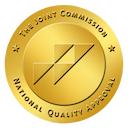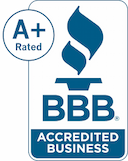Rehab Resources and Addiction Information for Rural Florida
Over the course of two decades, there was a nationwide increase in drug overdose deaths in rural counties, jumping from 4% in 1999 to 19.6% in 2019.1 This dramatic increase clearly illustrates the need for addiction treatment in many rural areas across the country, including rural areas of Florida.
If you are a Floridian living in a rural area, you may not have to travel far to find high-quality addiction treatment.
Finding Addiction Treatment in Rural Florida
Drug Addiction Treatment Near Rural Areas of Florida
River Oaks Treatment Center—a drug rehab near Tampa, FL—offers several types of addiction treatment to provide for the exact needs of every individual. From medical detox and inpatient rehab, to outpatient rehab that includes both day treatment and intensive outpatient, River Oaks offers compassionate and professional care to every patient in a warm and welcoming environment.
If you’re wondering what level of care is right for you, remember that addiction treatment looks different for every individual. When assessing an incoming patient and developing a treatment plan, clinicians should consider factors such as:
- Substance(s) used.
- Amount and length of use.
- Co-occurring disorders such as depression or anxiety.
- Health issues.
- Motivation for treatment.
At River Oaks, we individualize every patient’s care to provide the best support possible and raise the odds of good outcomes.
How To Choose the Right Rehab Facility
It is critical to recovery success to choose the right rehab facility for a patient’s needs. Factors to consider include:
- Payment options. There are many ways to cover the costs of rehab, including insurance coverage for addiction treatment and financing options.
- Facility amenities. A rehab facility’s amenities are also important to consider. Amenities may include recreational areas, private and community spaces, activities, meals, and more.
- Location. If local treatment options are scarce or nonexistent, it can be beneficial to travel to another location to receive treatment services. The location of a rehab facility is essential when a patient must travel there, reside there, or plans to have family involved in the treatment process. River Oaks Treatment Center is located in the Tampa Bay area and offers patients the benefits of a high-quality facility in a scenic and relaxing environment.
Drug and Alcohol Rehab Admissions
When choosing a drug and alcohol rehab facility, it’s important to check whether the addiction treatment center is in-network with your health insurance provider. If uninsured, a facility will typically assist a patient find alternative ways to pay for rehab, including state-funded insurance (Medicaid/Medicare) or financing options such as a payment plan.
You can instantly check your insurance coverage for River Oaks Treatment Center by using our free
At River Oaks Treatment Center, we understand the confusion and distress that can come with the process of getting help. That’s why we’ve outlined what all incoming patients should know about what to expect in rehab when entering treatment. We’ve also outlined the basics of the admissions process at River Oaks. Armed with all the information, you can feel more comfortable taking that first step toward recovery.
Worried You May Have a Substance Use Problem?

Drug & Alcohol Misuse in Rural Communities in FL
According to the Rural Health Information Hub, use of methamphetamines among adults in rural areas is higher than it is in urban areas.2 Prescription drug misuse and heroin use also continue to be a major concern, increasing in both rural and urban areas.2
In 2019, binge alcohol use by youths ages 12 to 17 in rural areas was 5.4% compared with 4.8% in large metropolitan areas.2 Additionally, 14.2% of rural adults used marijuana, 16.6% used illicit drugs, 3.1% misused opioids, 1.3% used cocaine, 1.7% used hallucinogens (e.g., shrooms, LSD), and 1.2% used methamphetamines.2
Contributing factors to rural substance use include lack of educational attainment, poverty, unemployment, scarcity of mental health care, and isolation.2
Additional Addiction Resources for Rural Communities
There is help available for those struggling with addiction and living in rural communities in Florida. In Florida, public substance use treatment is provided by local community-based providers that are contracted through one of seven Managing Entities (MEs) that are in turn contracted through the Florida Department of Children and Families (DCF).
Within DCF, the Substance Abuse and Mental Health (SAMH) is the single state authority on behavioral health treatment, and it oversees public addiction treatment programs. Treatment for addiction is localized and depends on where a person lives.
A public program often receives money in the form of federal, state, or local government grants and other funding to cover the costs of services. Public programs that receive funding from these sources in Florida must be licensed by the state.
DCF-provided services may include:
- Detox.
- Crisis management and stabilization.
- Case management.
- Assessment.
- Counseling.
- Inpatient treatment.
- Outpatient services.
- Life skills training.
- Peer-based group and individual counseling.
- Parenting classes.
- Transitional services.
- Recovery support.
Public services are provided to all residents regardless of their financial situation or ability to pay for services. Services are offered on a “sliding scale,” depending on a person’s financial circumstances. Treatment providers may accept Medicaid, Medicare, or private insurance to help pay for services as well.
To find a treatment provider in rural Florida, individuals can use their regional ME to locate a nearby provider. Managing Entities and the rural counties they serve in Florida are as follows:
- Northwest Florida Health Network: serves Calhoun, Franklin, Gadsden, Gulf, Holmes, Jackson, Jefferson, Liberty, Madison, Taylor, Wakulla, Walton, and Washington counties.
- Central Florida Behavioral Health Network (CFBHN): serves DeSoto, Glades, Hardee, Highlands, and Hendry counties.
- LSF Health Systems: serves Baker, Bradford, Columbia, Dixie, Gilchrist, Hamilton, Lafayette, Levy, Suwannee, and Union counties.
- Thriving Mind South Florida: serves rural Monroe County.
- Southeast Florida Behavioral Health Network (SEFBHN): serves rural Okeechobee County.
Rural Floridians often travel outside of their county in order to find addiction treatment services. In many cases, it can be beneficial to have some distance between home and an inpatient treatment facility, in order to get away from daily triggers and a chaotic home environment.
A complete list of DCF-licensed providers listed by specific city is available. Florida residents can also use the Substance Abuse and Mental Health Service Administration’s Behavioral Health Treatment Services Locator to find local options.
Florida also has many anti-drug, education, advocacy, and prevention coalitions that serve local communities. For example, the Florida Alcohol & Drug Abuse Association (FADAA) is a nonprofit organization helping communities around the state of Florida. A comprehensive listing of Florida community-based drug use prevention and community advocacy coalitions can be found.
The Florida Rural Health Association (FRHA) provides resources on local health providers and networks in rural Florida. The Florida State Office of Rural Health (SORH) strives to ensure that rural residents have access to quality health care.



